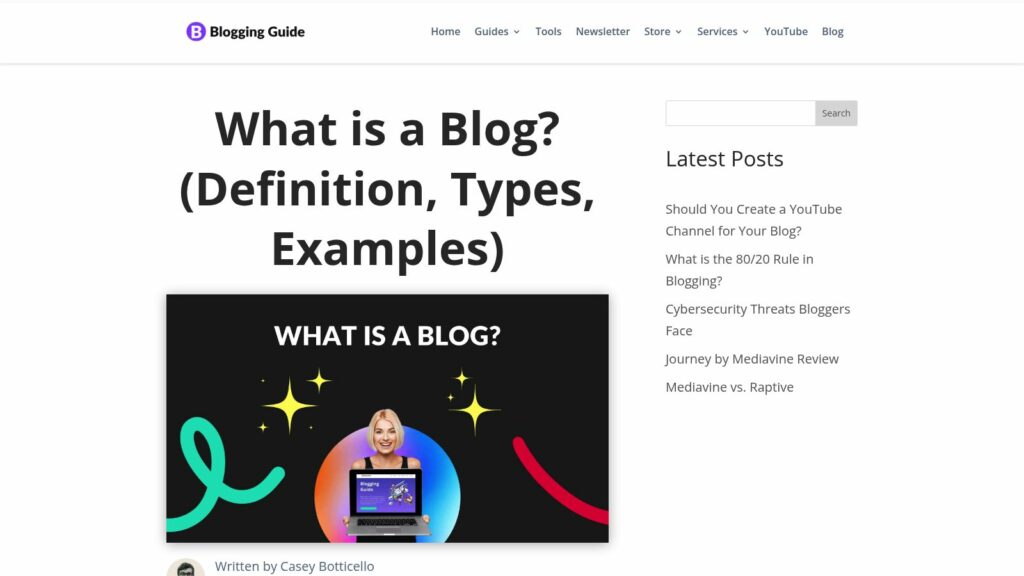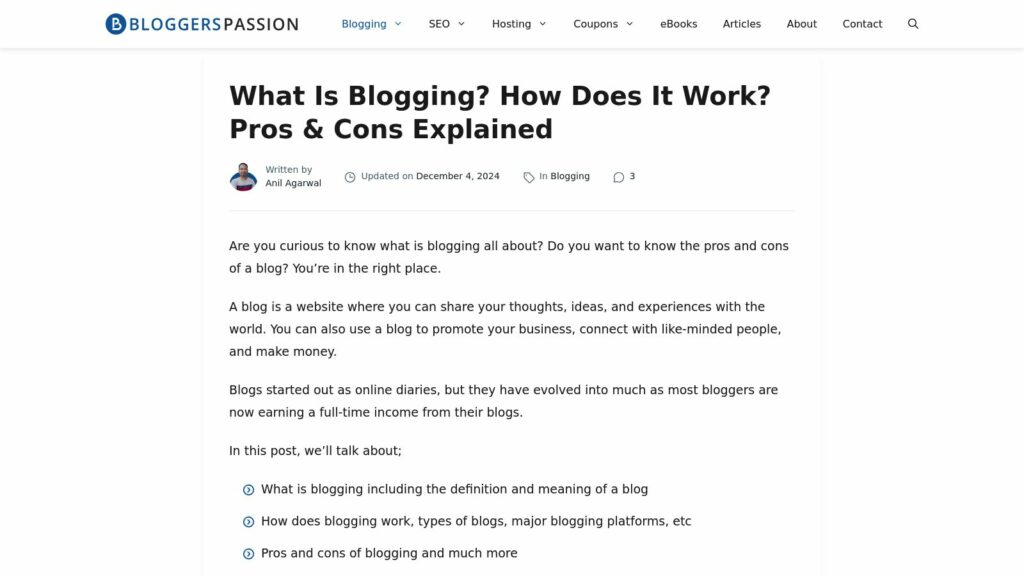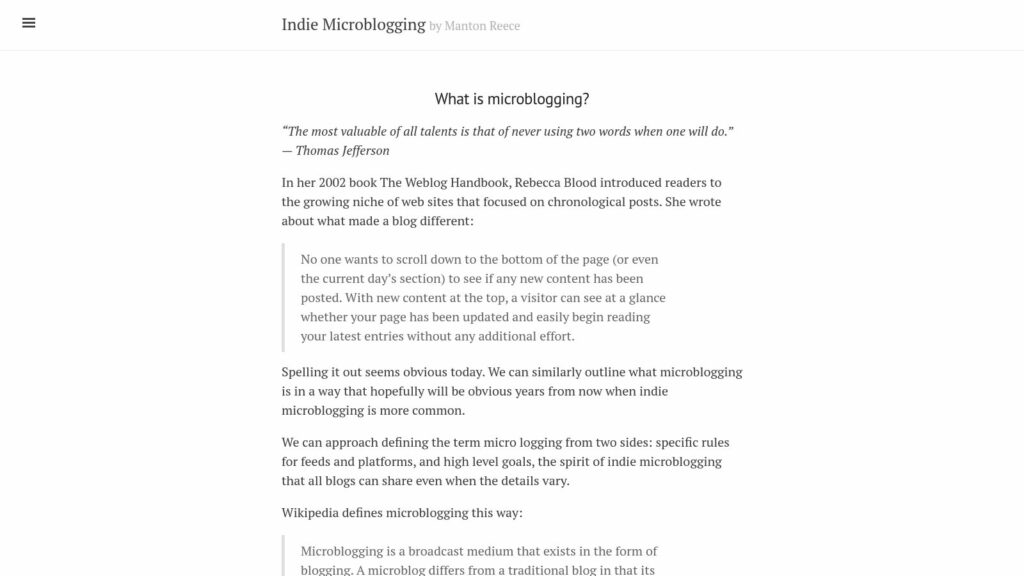Blogging Overview: A blog is an online platform for sharing ideas, experiences, and promoting businesses. Initially personal diaries, blogs now serve various purposes, including income generation. Key topics include blogging definitions, how it works, types of blogs, pros and cons, major platforms, and monetization strategies.
Definition: A blog is an informal website allowing users to post thoughts and opinions, often organized chronologically.
Types of Blogs: Common varieties include travel, personal, niche, lifestyle, health, and corporate blogs.
Pros: Benefits include income potential, community building, branding, and skill enhancement.
Cons: Challenges encompass time demands, content generation, competition, and task management.
Major Platforms: Popular blogging platforms include WordPress, Medium, Blogger, Wix, and Weebly.
Monetization: Bloggers earn through advertising, affiliate marketing, sponsored posts, or selling products/services.
Starting a Blog: Key steps involve choosing a platform, selecting a domain name, setting up, and consistently posting quality content.
Conclusion: Blogging can build online reputation, generate income, and enhance skills. With a strategic approach, it's a viable path for many aspiring creators.
https://bloggerspassion.com/what-is-blogging/


